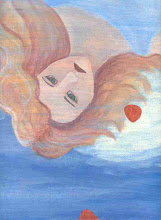Tuesday, July 24, 2018
Book 601
Because of Winn-Dixie, by Kate DiCamillo, Candlewick, 2001.
I've read many other books by Kate DiCamillo before, and have loved or liked them all, but I had never read Because of Winn-Dixie -- until now.
My third grade son's Literature Class because reading this in school. He loved it so much, he wanted his own copy, so we bought one. When he finished the book, he wanted the movie, so we bought a copy of that too.
It's hard to explain why this book, or any of Kate DiCamillo's writing, stand out. Certainly she isn't afraid of difficult topics, but neither are a lot of other writers. She also isn't afraid to give a not-quite-perfectly happy ending, but, again, neither are a lot of other writers. If I were to guess, though, I would say that one reason her writing is so accessible and enjoyable is that her main character(s) are not perfect. They may mean well, but they don't get everything right, just like most kids.
Book 600
Rapid Eye Movement, by Istvan Banyai, Viking Books, 1997.
I am reviewing this book during National Poetry Month because this book felt like poetry without words. It also felt like a tribute to Winsor McCay and his Nemo. I have to admit that I didn't completely understand it -- my dreams perhaps are not as close to me as Mr. Banyai's are to him -- but my nine-year-old son, whose imagination and dreams have sparked many stories, understood this book perfectly. So I guess I also have to admit that I was not the target audience for this book. Dreamers, however, will love it.
Book 599
Dr. Spock's Baby and Child Care, by Benjamin Spock, M.D.
This book is helpful -- I will allow that -- but I wouldn't use it at a 'baby care bible'. It is a reference, but it is no replacement for a parent's instincts. Also, please, please, please, do not compare your child to another child of the same age. Children do learn at different rates. For example, my son tried to walk just before he turned one. He fell. He did not try again for another four months. Then when he walked, he never fell down. He learns like that with everything. He might be slower to grasp a concept, but once he does, he masters it. So make this book a guide, not a 'bible'.
Book 598
The Secret Garden, by Frances Hodgson Burnett.
This book is a classic. It deserves to be a classic, but that doesn't mean it is perfect. It is, at times, so sweet it makes your teeth ache. It is, at times, so simplistic a six-year-old could spot the plot. But then there is the ending. The ending makes everything worthwhile.
Book 597
Russian Folk Tales, by James Riordan, Oxford University Press, 2000.
I have long thought that all fairy tales are derived from the story of Cupid and Psyche (or, from the source, The Golden Ass). This book does not disprove my theory.
It was interesting to recognize Russian versions of familiar stories, like Cinderella, and East of the Sun and West of the Moon, and even Baron Munchausen. I don't think the telling of the stories was quite as dynamic as it could have been, nor were the illustrations as engaging as they could have been.
Book 596
You Might As Well Live, by John Keats, Simon and Schuster, 1970.
This book was well-written, and I learned much about Dorothy Parker from reading it. It did, however, also prove the adage that some troubled people use wit to make the world a little less bitter for everyone.
Book 595
Three Mrs. Murphy Tales, by Rita Mae Brown, Wings Books, 2003.
Two thirds of this book aren't bad. I would skip the final section, unless you think that the Civil War was fought over "states' rights".
Subscribe to:
Posts (Atom)








